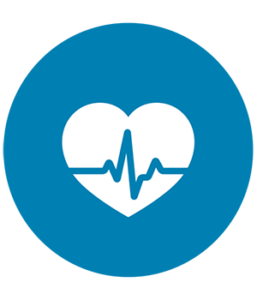Alcohol Detox: Process, Symptoms, and Risks
If you’re quitting alcohol, you might get anti-seizure medication or benzodiazepines to help with the withdrawal, and naltrexone or other medications to help you stop drinking. For most people, rehabilitation treatment is the next step after detoxification. Many people benefit most by staying in the hospital to start rehabilitation in a supportive treatment program. Others leave the hospital and attend recovery programs as an outpatient.
The only problem with detox in a hospital is that the medical team handles alcohol like any other disease. You will not get the care and support that you need to go complete addiction demi lovato shows off new tattoo to celebrate sobriety treatment. Alcohol detox in a hospital means clinically managing the detoxification process. Many people have questions about what medications are used during withdrawal.
- [I-C] At UMHS, this is done by the General or Psychiatric Social Work Department.
- The main benefit of an outpatient detox program is that you get to stay in your own home but still have professional support.
- It can be tricky to handle social situations as you cut back on drinking, especially if you’re around other people who are drinking or who are used to seeing you drink.
For that reason, detoxing on your own, without any guidance or supervision, is generally not wise. Millions of people join support groups to help stop drinking and stay stopped. Studies show support groups play an instrumental role in helping people develop healthy social networks that result in continued sobriety.
AWS is a clinical syndrome that can include a wide variety of symptoms and signs, such as anxiety and tremors (Figure 2). Total and lifelong avoidance of alcohol (abstinence) is the best treatment for those who have gone through alcohol withdrawal. CADCs provide individual and group therapy to help people living with addiction. They’re trained in counseling, relapse prevention, and helping patients recognize patterns and make healthy changes.
Outpatient Therapy
So, to answer the question posed by the myth of Prometheus, the liver has an amazing power to repair itself after it has been damaged. In the late stages of cirrhosis, when the liver fails, people can turn yellow (jaundice), swell with fluid and become sleepy and confused. If this carries on unchecked, the whole liver can become a mesh of scars with small islands of “good” liver in between – cirrhosis. American Addiction Centers (AAC) is committed to delivering original, truthful, accurate, unbiased, and medically current information. We strive to create content that is clear, concise, and easy to understand.
Our addiction medicine care teams can help members with severe SUD stop drinking or using drugs safely and comfortably. This doesn’t treat SUD, but it’s an important first step toward recovery for the members who need it. You also may not have the option of using medication to make the process easier.
Find New Life in Recovery
Laura Morris is an experienced clinical practitioner and CQC Registered Manager with over twenty years experience, over ten of which have been as an Independent Nurse Prescriber. She has held a number of senior leadership roles in the substance use and mental health sector in the NHS, the prison service and in leading social enterprises in the field. The hospital does not offer other treatment services that are detrimental to your recovery journey, such as group therapy, family counselling, and other follow up services.
Residential Detox and Treatment Program
Individual therapy, including medication management, is available and emphasizes evidence-based therapies for treatment of addiction. For people who experience hallucinations as part of alcohol withdrawal, these may begin in the 12- to 24-hour time frame. Alcohol withdrawal symptoms range from mild but annoying to severe and life-threatening. You don’t need to be diagnosed with alcohol use disorder in order to quit drinking. If alcohol is interfering with your health or your personal, financial, or professional life, consider quitting.
What is alcohol detox in a hospital?
Many also choose to take part in a 12-step fellowship; we offer meetings on-site and can help you find a temporary sponsor to start working on your recovery. Other studies have assessed the concomitant administration of phenobarbital plus a benzodiazepine. However, it should be noted that the mean dose of phenobarbital used in this latter study was 260mg versus the 10mg/kg dose of phenobarbital used in the original study. Similarly, several of the symptoms of AWS may be seen independently in medically ill patients (nausea, vomiting, headache, diaphoresis) and in those with delirium due to a separate etiology (clouded sensorium, perceptual disturbances). Furthermore, some patients may exaggerate the subjective symptoms of alcohol withdrawal in order to receive more benzodiazepines.
Perform baseline laboratory testing in those suspected of experiencing alcohol withdrawal (Table 3). These include the initial blood alcohol level (BAL), urine toxicology screen, complete blood count, basic metabolic profile with magnesium and phosphorus, and liver function tests. Even with a positive BAL, a person can experience significant withdrawal symptoms. Patients with alcohol dependence often have concomitant polysubstance use, and a urine toxicology screen may identify other substances that may mimic or coexist with AWS. Basic hematological measurements may identify alcohol induced suppression of bone marrow, signs of nutrient deficiencies, or thrombocytopenia as a consequence of cirrhosis.
It is an additive therapy for symptom management, used along with a benzodiazepine medication. Haloperidol can control psychomotor agitation and violent or dangerously impulsive behavior. These effects include, but are not limited to, inadvertent masking of the withdrawal severity, increased propensity for seizures, restlessness, and agitation. However, patients with significant alcohol abuse may manifest signs or symptoms of withdrawal even in the presence of detectable serum alcohol levels. Because acute detoxification is a serious medical process that can take three to five days, our highly trained staff carefully monitor and support each person’s progress.
Tap into your social network to help support you through alcohol withdrawal. Find a supportive friend or family member to be with you while you withdraw and support your new non-drinking how to help an alcoholic parent lifestyle. For people at low risk of complications, an office visit to your primary care provider, along with at-home monitoring and virtual office visits, may suffice.
Why Get Help for Alcohol Withdrawal?
However, try not to have too many firm expectations, as symptoms can continue for multiple weeks in some people. Aftercare programs are also an important part of staying sober and avoiding a relapse. We offer ongoing support group meetings, access to supportive alumni networks and referrals to community programs. We also have a special six-week outpatient program for those who have relapsed after going through treatment and stayed sober for at least six months. It can be tricky to handle social situations as you cut back on drinking, especially if you’re around other people who are drinking or who are used to seeing you drink. If you’ll be out with close friends or family you’re comfortable with, let them know ahead of time that you’re not drinking.
AWS is frequently observed in emergency departments as well as inpatient medical and surgical services. Given the spectrum of patient presentation and the breadth of treatment options, management of patients experiencing AWS is inherently complex. These guidelines have been developed to ensure consistent care delivery for patients with AWS across inpatient services. These guidelines are applicable to all inpatient services and patients, except for patients transferred to the Intensive Care Units (ICUs) for uncontrolled MAWS, which are beyond the scope of this guideline.
This option might also seem preferable if you don’t have insurance and can’t pay for a treatment program. The Alcohol, Drug, and Addiction Outpatient Program is covered by most insurance providers. McLean Hospital accepts Medicare, Massachusetts Medicaid, and many private insurance and managed care plans. Our robust group therapy programming focuses alcohol tapering on integrated group therapy for dual diagnosis, as well as early recovery and specialized recovery treatment. Over time, however, the body builds a tolerance to alcohol, and a person may have to drink more and more to get the same feeling. Meanwhile, the brain is producing more and more neurotransmitters, making a person further imbalanced.

